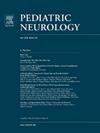A Retrospective Review of Reclassification of Variants of Uncertain Significance in a Pediatric Epilepsy Cohort Undergoing Genetic Panel Testing
IF 3.2
3区 医学
Q2 CLINICAL NEUROLOGY
引用次数: 0
Abstract
Background
The interpretation and communication of variant of uncertain significance (VUS) genetic results often present a challenge in clinical practice. VUSs can be reclassified over time into benign/likely benign (B/LB) or pathogenic/likely pathogenic (P/LP) based on the availability of updated data. We evaluate the frequency of VUS reclassification in our tertiary care epilepsy cohort undergoing epilepsy genetic panel (EGP) testing.
Methods
Patients with established diagnoses of epilepsy (neonates to 18 years of age) who underwent EGP testing between 2017 and 2022 from a single commercial laboratory were evaluated. Patients who had any variant reclassified from their initial EGP report were included. Duration between reclassification of VUSs and types of reclassifications were compared between developmental and epileptic encephalopathy (DEE) versus non-DEE phenotypes.
Results
Over the five years, 1025 probands were tested using EGP. Eighty-five probands (8%) had at least one genetic variant reclassified. A total of 252 initial VUSs were reported in the 85 probands, of which 113 (45%) VUSs were reclassified. Of 113 reclassification events, 21 (19%) were upgraded to P/LP and 92 (81%) were reclassified to B/LB. The median (interquartile range) duration between variant reinterpretations in the cohort was 12 (14.5) months. There were no significant differences in the duration between reclassification and the likelihood of reclassification of VUSs to B/LB or P/LP between the two groups (DEE versus non-DEE).
Conclusions
VUS reclassification over time can lead to clinically significant variant reinterpretation in patients with unknown genetic diagnoses. Periodic genomic test reinterpretation, preferably yearly, is recommended in routine clinical practice.
对接受基因组测试的小儿癫痫队列中意义不确定的变异体进行重新分类的回顾性研究。
背景:在临床实践中,如何解释和交流意义不确定的基因变异(VUS)结果往往是一项挑战。随着时间的推移,根据更新数据,VUS 可被重新分类为良性/可能良性(B/LB)或致病性/可能致病性(P/LP)。我们对接受癫痫基因面板(EGP)检测的三级医疗机构癫痫队列中 VUS 重新分类的频率进行了评估:我们对 2017 年至 2022 年期间在一家商业实验室接受 EGP 检测的确诊癫痫患者(新生儿至 18 岁)进行了评估。纳入了与最初的 EGP 报告相比有任何变异重新分类的患者。比较了发育性癫痫性脑病(DEE)与非DEE表型之间VUS重新分类的持续时间和重新分类的类型:在这五年中,共有 1025 名受试者接受了 EGP 检测。85名受试者(8%)至少有一个基因变异被重新分类。这 85 名受试者共报告了 252 个初始 VUS,其中 113 个(45%)VUS 被重新分类。在 113 个重新分类事件中,21 个(19%)升级为 P/LP,92 个(81%)重新分类为 B/LB。队列中变异重新解释之间的中位时间(四分位数间距)为 12(14.5)个月。两组之间(DEE与非DEE)在重新分类之间的持续时间以及VUS重新分类为B/LB或P/LP的可能性方面没有明显差异:结论:随着时间的推移,VUS 的重新分类可导致对基因诊断不明的患者进行具有临床意义的变异重新解释。建议在常规临床实践中定期对基因组测试进行重新解读,最好每年一次。
本文章由计算机程序翻译,如有差异,请以英文原文为准。
求助全文
约1分钟内获得全文
求助全文
来源期刊

Pediatric neurology
医学-临床神经学
CiteScore
4.80
自引率
2.60%
发文量
176
审稿时长
78 days
期刊介绍:
Pediatric Neurology publishes timely peer-reviewed clinical and research articles covering all aspects of the developing nervous system.
Pediatric Neurology features up-to-the-minute publication of the latest advances in the diagnosis, management, and treatment of pediatric neurologic disorders. The journal''s editor, E. Steve Roach, in conjunction with the team of Associate Editors, heads an internationally recognized editorial board, ensuring the most authoritative and extensive coverage of the field. Among the topics covered are: epilepsy, mitochondrial diseases, congenital malformations, chromosomopathies, peripheral neuropathies, perinatal and childhood stroke, cerebral palsy, as well as other diseases affecting the developing nervous system.
 求助内容:
求助内容: 应助结果提醒方式:
应助结果提醒方式:


